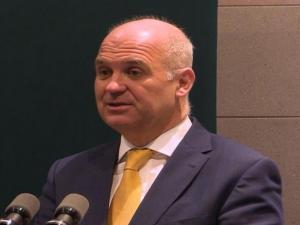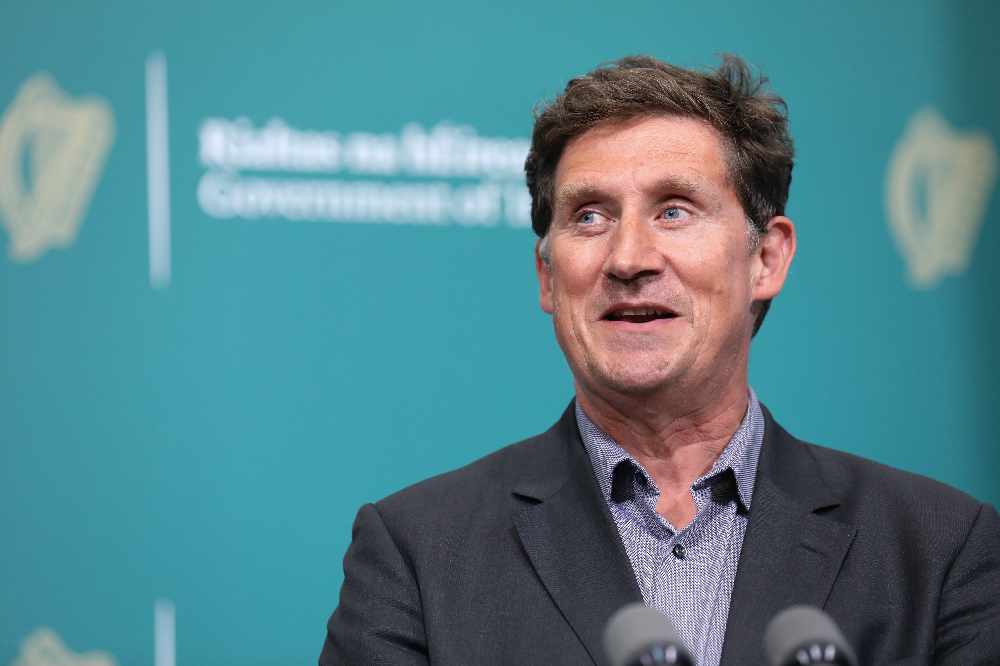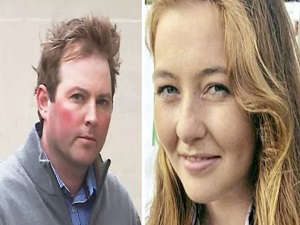
By Michelle Devane, PA
The Government has been advised to introduce the highest level of Covid-19 restrictions across the country in a bid to halt the spread of the virus.
The National Public Health Emergency Team recommended that all 26 counties be elevated to level five restrictions for the next four weeks.
The move comes after NPHET members held an unscheduled meeting on Sunday, chaired by chief medical officer (CMO) Tony Holohan, as the number of cases continues to rise.
The advice, sent to Government in a letter on Sunday night, would need to be approved by Cabinet.
Dublin and Donegal are currently subject to level three restrictions under the Government’s Covid-19 five-tier response plan, with the rest of the country at level two.
A move to level five would mean a return to the strictest level of measures similar to lockdown earlier this year.
There would be no visits between households, only essential retail shops would remain open, but schools and creches would stay open.
Only 10 people would be allowed to attend funeral services and weddings would be limited to six people.
Bars, cafes and restaurants would be allowed to provide takeaways only.
People would be asked to work from home, limit their exercise to within five kilometres of their home and not use public transport.
Visits to care homes would be suspended except for compassionate circumstances.
It is expected that the three party leaders in Government will seek a meeting with the CMO on Monday to discuss the matter.
It comes as a total of 364 new cases of Covid-19 were confirmed in Ireland by NPHET.
There were no new deaths associated with the virus.
As of 8am on Sunday, 134 people with Covid-19 were in hospital and 21 people were in ICU beds.
More than 600 new cases of the virus were confirmed on Saturday, the highest daily figure in more than five months.
The move coincides with the head of health protection at the Public Health Agency in Northern Ireland warning that a circuit-breaker lockdown there was “almost inevitable” if Covid-19 cases continue to increase.
Dr Gerry Waldron described the rise in the infection rate in the region as worrying.
Earlier, the leader of the Green Party said there had been no discussion in the Irish Government about a nationwide lockdown, rather it wanted to work on a county-by-county basis.
Instead he believed Dublin and Donegal could avoid moving to level four restrictions if people follow Covid-19 public health guidelines.
Eamon Ryan also said he believed the rest of the country could avoid being placed in level three restrictions if the public adhered to the Government’s measures.

Eamon Ryan
“What we’re seeking to do here is not to eradicate the virus, I don’t think that’s going to be a viable option, but to stabilise it,” he told RTE’s The Week In Politics.
“I think that there is real concern when you look at other counties – it is rising very fast. We need to do the simple things, reduce the number of people we meet, avoid social contact.
“If we all do that we can avoid going to level four, other counties can avoid going to level three and I hope that Dublin can get back to level two, and Donegal too.”
He added that he believed it was possible that the infection rate could be stabilised, but he admitted that everyone was “fearful” when the daily numbers continue to rise.
Mr Ryan also said that if counties moved to level four restrictions, the schools would stay open.
“I think, no matter what, I think the Government is committed, that it is important,” he said.
He added: “The international evidence is that it can be done safely and I think our schools have done a good job in terms of making it safe for our students.”
Acting chief medical officer Dr Ronan Glynn said on Friday that the numbers reported over the past week represented a significant escalation in the profile of Covid-19 in Ireland.
People of all ages, in particular those over the age of 70 and those medically vulnerable, were advised to limit their social contacts to a small core group for short periods of time, while remaining socially distanced.


 Swann refuses to rule out resigning if budget is not changed
Swann refuses to rule out resigning if budget is not changed
 Fresh inquests ordered into deaths of 15 killed in McGurk’s bomb blast
Fresh inquests ordered into deaths of 15 killed in McGurk’s bomb blast
 Trial ends after man accused of murder of young showjumper is found dead
Trial ends after man accused of murder of young showjumper is found dead
 A brief hearing and chaotic scenes as Donaldson makes first court appearance
A brief hearing and chaotic scenes as Donaldson makes first court appearance